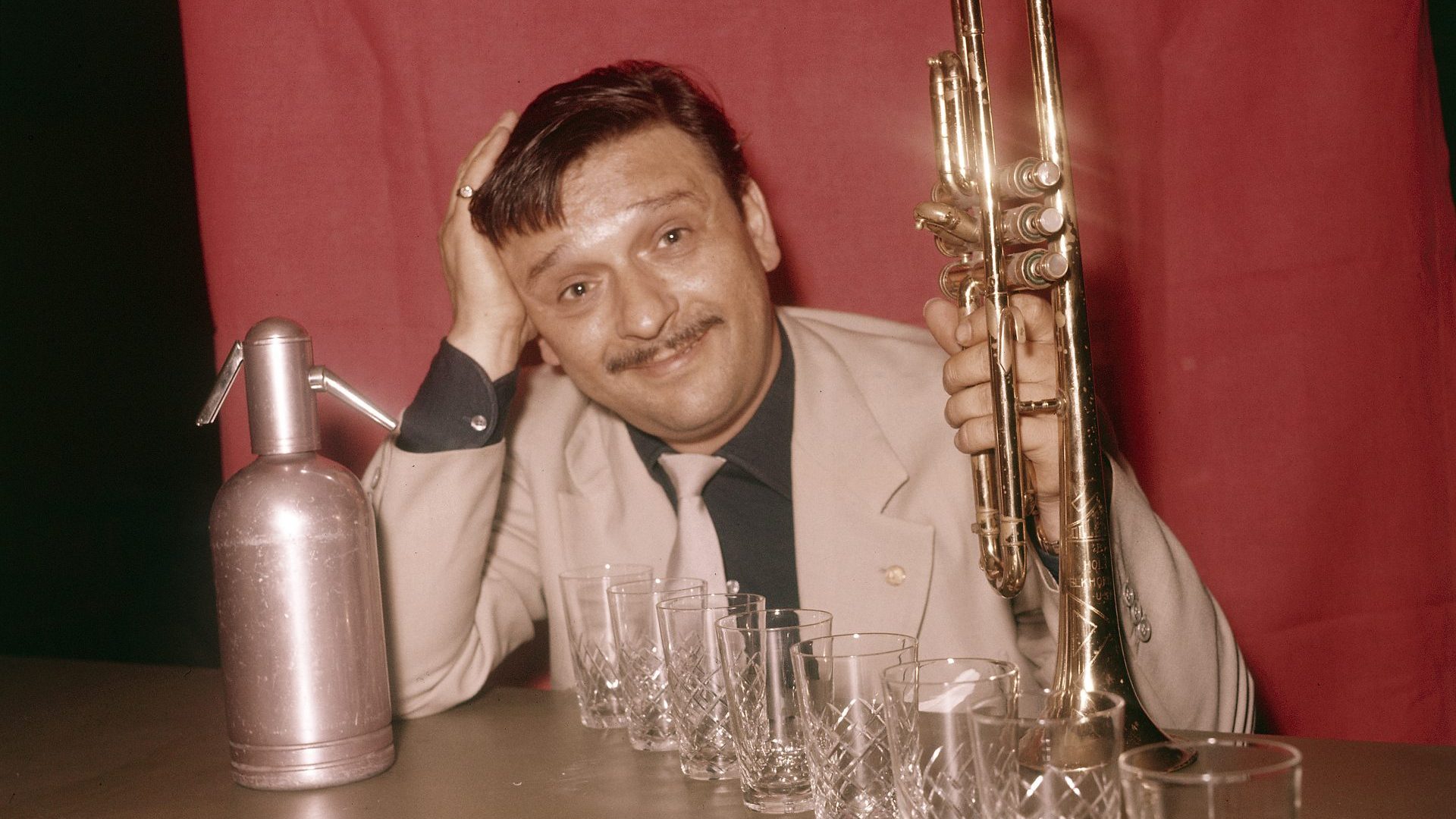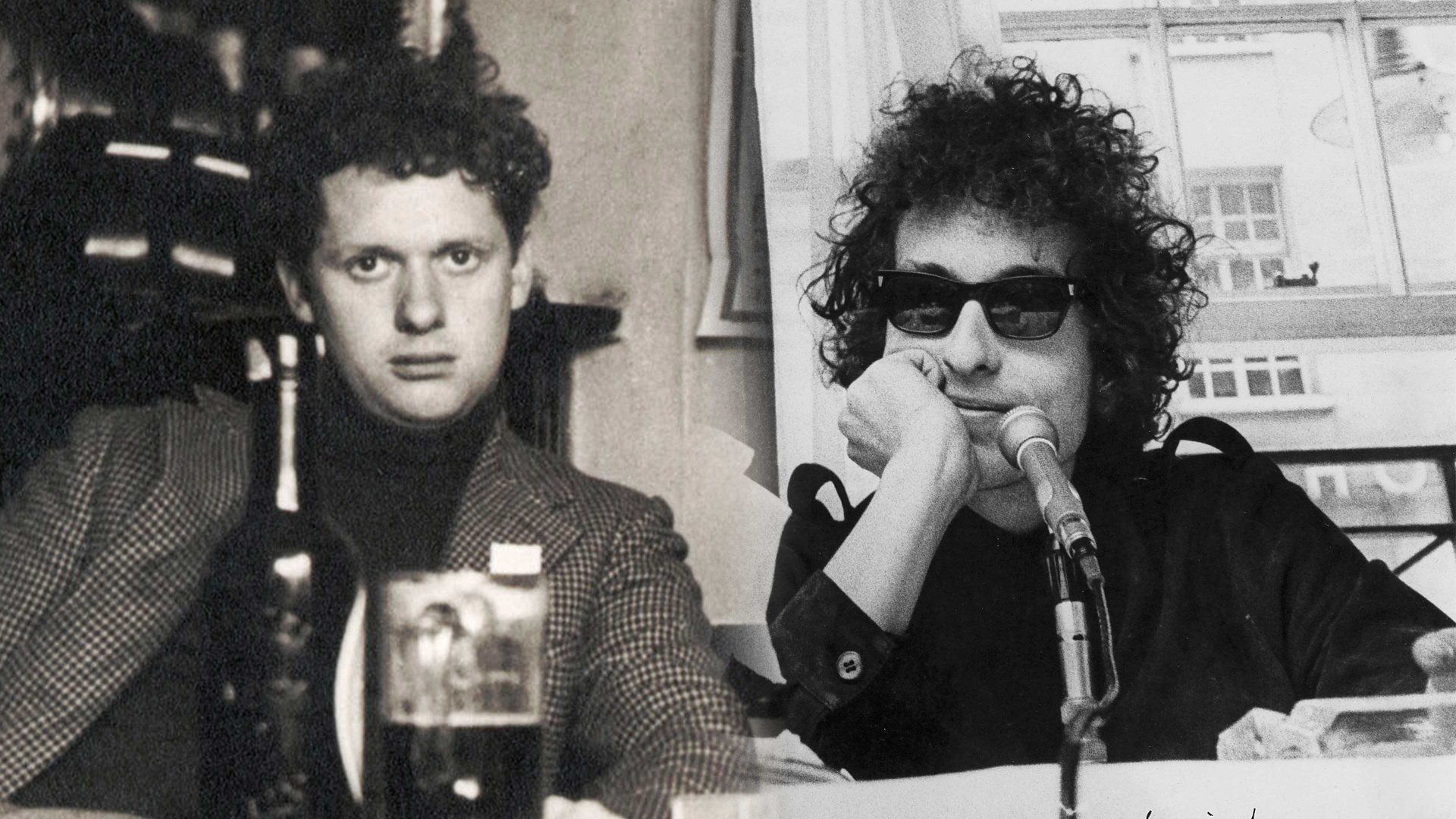When Fred Buscaglione arrived in his home city of Turin after the war, he was returning to a devastated city and a traumatised people questioning the very core of their national identity. He was 24 and felt suddenly old: the Turin he remembered, the bustling, confident city with a vibrant nightlife, seemed to be from a different lifetime.
Freshly demobbed and with his old army duffel bag over his shoulder, Buscaglione wondered what lay ahead. He knew one thing, though. He would grasp every opportunity to rise with the city from its shattered ruins.
He didn’t know it, but Turin and the rest of Italy were about to begin a remarkable economic and cultural resurgence. Not only that, he would come almost to embody the nation’s revival, achieving extraordinary fame and success, before it all ended at the dawn of a decade that could have been made for him.
Two years earlier, things had looked even less promising. Called up into the Italian army, he had been posted to Sardinia, where before long he found himself captured by the Americans and interned in a succession of prison camps.
On a transfer between camps Buscaglione began whistling the tune Stardust, which was noticed above the roar of the truck’s engine by an American GI who struck up a conversation. When Buscaglione told him that in peacetime he was a professional musician, a multi-instrumentalist playing double bass, piano, violin and singing night after night in the nightclubs of Piedmont, the GI’s eyes lit up. As it happened he was involved with a jazz band made up of soldiers and Italian PoWs. Buscaglione sounded like just the kind of guy he was looking for.
The band was a huge success. So popular did Buscaglione become that before long he was sent to Cagliari to make regular appearances on Radio Sardegna, the first Italian radio station to be free of state censorship in 20 years (also the station that would in 1945 be the first in the world to broadcast the news that the war was over).
By performing with the band, Buscaglione was gaining valuable experience of big productions, bigger than the small combos on tiny nightclub stages he was used to. With his work at the radio station, in which the Americans had a controlling influence, he was also hearing the latest sounds from across the Atlantic.
In Turin after the war he set about assembling the band whose core members would stay with him for the rest of his career. He also reconnected with the screenwriter and lyricist Leo Chiosso, who as a university student had spent his evenings watching a teenage Buscaglione performing on Turin’s nightclub circuit.
The young Ferdinando Buscaglione, son of a house painter and part-time piano teacher, had shown enough musical promise to win a place at Turin’s Giuseppe Verdi Conservatoire when he was 11 years old. After three years, however, the family’s precarious financial situation forced the young musician out of education and into the workplace, first as a delivery boy, but soon learning his musical trade long into the night in smoky, windowless clubs, where he was noticed by Chiosso.
The lyricist was certain Buscaglione had a future performing his own material rather than the nightclub standards by which he earned his living. Their friendship intensified, becoming after the war the key factor in Buscaglione’s rise to become one of the biggest stars in a resurgent Italy. So close were the pair that they took apartments across the corridor from each other in the same building, where they would shut themselves away for days writing songs.
Both men were fans of American crime fiction and this was soon reflected in their writing, their jazz-influenced beat songs beginning to emerge in the voice of a specific character.
With Buscaglione already bearing a passing resemblance to Clark Gable, he adopted an Italian-American stage persona, all thin moustache, fedora and pinstripe suits. His songs told of the adventures of a ruthless mobster with a heart of gold, a man who might make his living in questionable ways but who always had a twinkle in his eye and a kindness in his heart that left him vulnerable to the whims of women and whisky.
Buscaglione’s profile rocketed as Italy staged its economic miracle. In 1956 he became the first Italian artist to sell a million copies of a single with Che Bambola and soon established himself as one of the first homegrown stars of Italian television.
He worked tirelessly, as if he felt he didn’t deserve his success and it could be taken away at any moment. It was not unusual for him to be shooting a film in the morning, a television show in the afternoon, be in a recording studio in the evening and then round off the night with a performance in a club. He was everywhere, on television programmes and in the advertisements that interrupted them, in the music charts and on the cinema screen. In 1959 alone he appeared in eight films.
He became a living, breathing manifestation of a nation growing in postwar confidence and becoming comfortable in its own skin, the Turin boy born into poverty who became one of the nation’s most successful entertainers just when the country had needed it.
The 1960s dawned with Buscaglione among the most famous faces in a nation striding confidently into a new era. In February 1960, he was in Rome for a string of nightclub engagements and, following a late-night meal with friends after his show, as the first pink hints of dawn seeped over the Roman horizon he raced his pink Ford Thunderbird through the near-empty streets of Parioli, an affluent northern suburb of the ancient city.
The 38-year-old had been thinking about stepping back from the limelight, perhaps even becoming plain old Federico Buscaglione again, but on nights like this, the show, the company, the sun about to rise over Rome on to a new day in a new era, he genuinely felt as if he could go on for ever. These were exciting times and he was at the heart of them.
A long, straight road opened up ahead as if leading straight to the rising sun. Buscaglione pressed down on the accelerator and the engine roared. At the next junction a truck carrying a trailer of granite crunched into gear and prepared to heave its way into his path.
The following day La Dolce Vita opened in cinemas across Italy and the 1960s truly began. Missing from them was a man who had lifted the nation and carried it towards the era it deserved.




